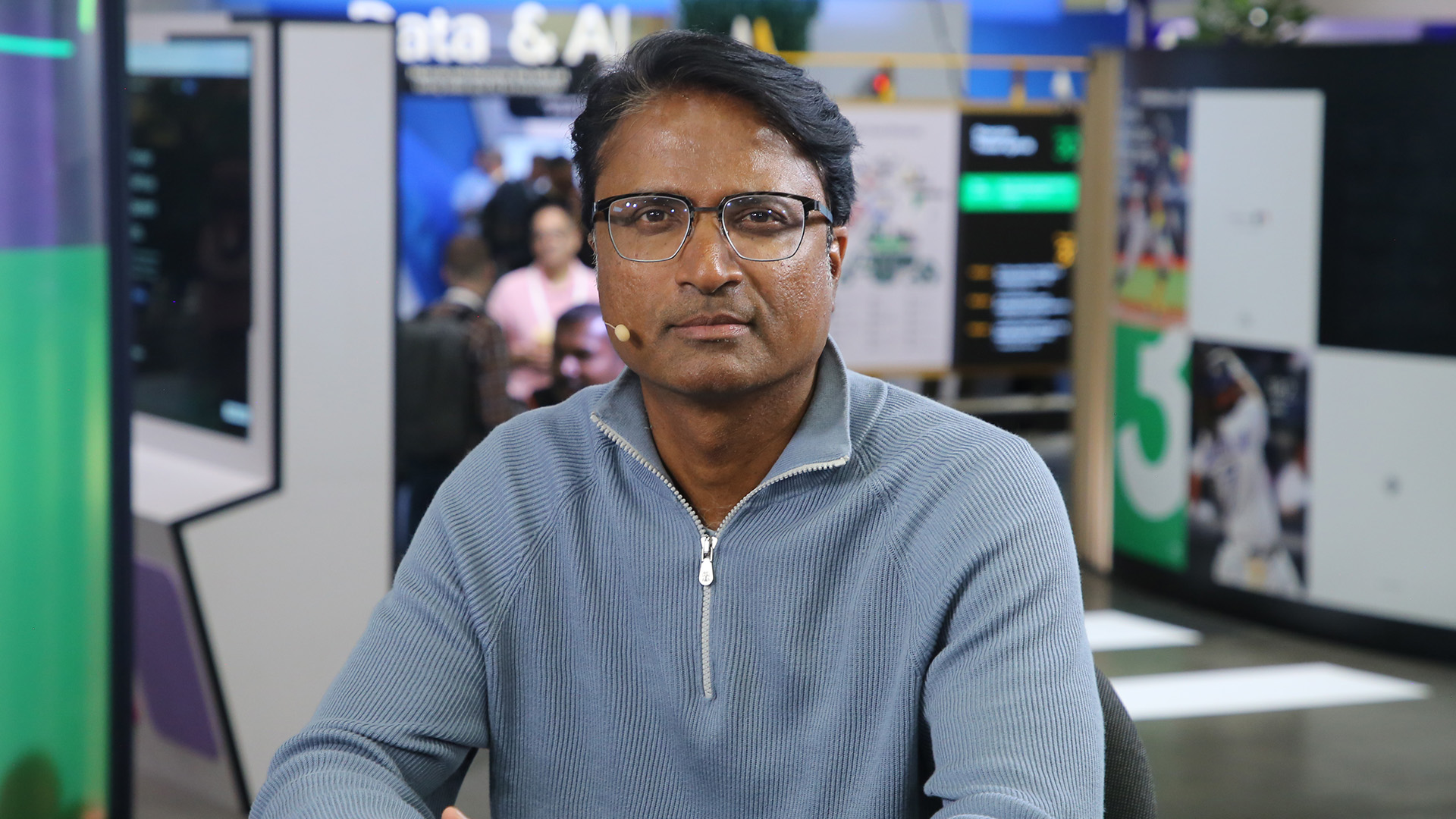 AI
AI
 AI
AI
 AI
AI
In an era where data breaches and cyberthreats have become an unsettling norm, the evolution of cloud security has emerged as a critical battleground in the digital landscape.
At the forefront of this transformation is Google LLC, with a vision to not just secure the cloud, but to embody security as a business. At this week’s Google Cloud Next event, tech experts talked about how using the security options of Google Cloud Platform allows companies to quickly respond to security incidents using AI-powered cloud innovation.
“Google really was intentional about security to be built in,” said Sunil Potti (pictured), vice president and general manager in charge of cloud security at Google Cloud. “We secured the cloud over the last four or five years; it’s become a noun as in we are in the security business … we wanted to bottle up that IP and bring it to customers where they are rather than just on GCP.”
Potti spoke with theCUBE industry analysts John Furrier and Rob Strechay at the Google Cloud Next event, during an exclusive broadcast on theCUBE, SiliconANGLE Media’s livestreaming studio. They discussed the evolution of cloud security, the integration of Mandiant and the role of artificial intelligence in shaping the future of cybersecurity. (* Disclosure below.)
Five years ago, Google embarked on a mission to make security an inherent part of its cloud services. It recognized the value of its intellectual property and sought to extend its protective capabilities to customers, leading to the creation of the security cloud. With the integration of Mandiant, a significant transformation occurred, positioning Google as a major player in the security landscape.
Mandiant’s expertise in threat intelligence and frontline insights were integrated into Google’s ecosystem. This integration empowers Google to respond effectively to emerging threats and share its IP with customers. By preventing “patient one” instances of cyberattacks, the collaboration between Google and Mandiant aims to safeguard the digital realm, according to Potti.
“The last year that we’ve been with Mandiant, it’s been completely fused into the Google ecosystem intentionally,” he said. “Starting with Mandiant’s frontline intel and services is something that we’ve doubled down on, because who better to actually educate the world other than a front responder that has actually seen the first instance of it.”
A focal point of the discussion was the role of AI in shaping the modern security landscape. This nervous system is embodied by Google Chronicle, which collects signals from various sources and controls security outputs. AI and Mandiant’s threat intelligence enhance this system’s efficacy in preventing and mitigating threats, Potti pointed out.
AI’s influence extends to the developer culture as well. Infusing AI into workflows, enabling secure coding practices and automated threat detection is of big importance, Potti added. The integration of AI into the security landscape transforms it into a solution-driven field, focusing on achieving tangible security outcomes rather than relying solely on products.
“I think you’ll hear this with … the ecosystem in general, is how security is evolving from a state of technologies and products or even solutions up to a state of outcomes,” Potti said.
Here’s the complete video interview, part of SiliconANGLE’s and theCUBE’s coverage of the Google Cloud Next event:
(* Disclosure: Google LLC sponsored this segment of theCUBE. Neither Google nor other sponsors have editorial control over content on theCUBE or SiliconANGLE.)
Support our mission to keep content open and free by engaging with theCUBE community. Join theCUBE’s Alumni Trust Network, where technology leaders connect, share intelligence and create opportunities.
Founded by tech visionaries John Furrier and Dave Vellante, SiliconANGLE Media has built a dynamic ecosystem of industry-leading digital media brands that reach 15+ million elite tech professionals. Our new proprietary theCUBE AI Video Cloud is breaking ground in audience interaction, leveraging theCUBEai.com neural network to help technology companies make data-driven decisions and stay at the forefront of industry conversations.